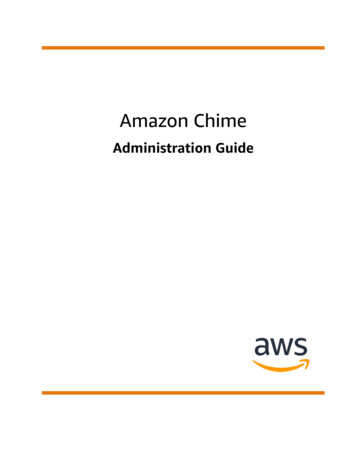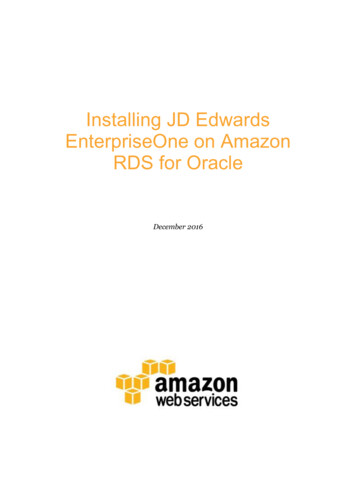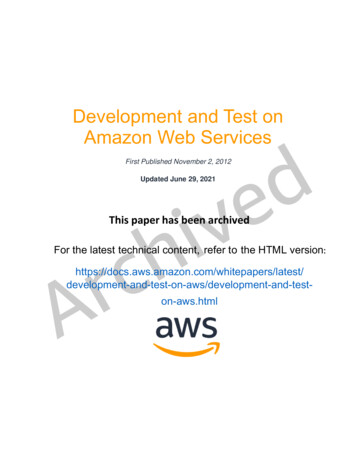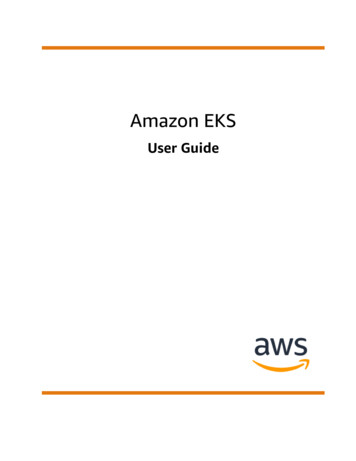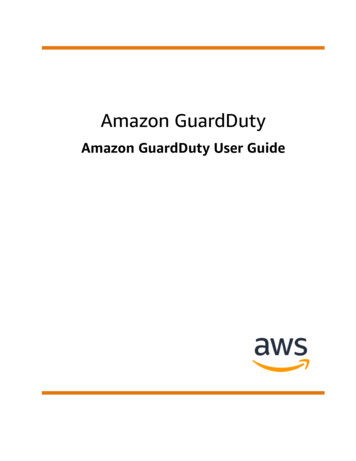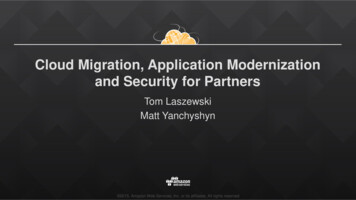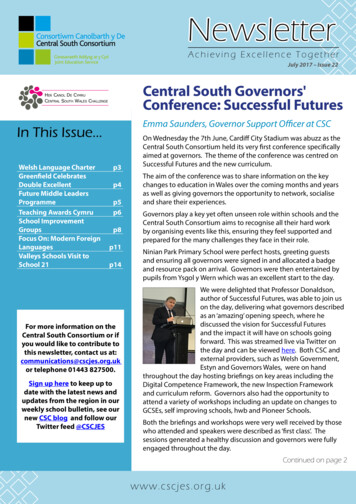
Transcription
NewsletterAchieving Excellence TogetherJuly 2017 – Issue 22Central South Governors'Conference: Successful FuturesHER CANOL DE CYMRUCENTRAL SOUTH WALES CHALLENGEEmma Saunders, Governor Support Officer at CSCIn This Issue.Welsh Language CharterGreenfield CelebratesDouble ExcellentFuture Middle LeadersProgrammeTeaching Awards CymruSchool ImprovementGroupsFocus On: Modern ForeignLanguagesValleys Schools Visit toSchool 21p3p4p5p6p8p11p14For more information on theCentral South Consortium or ifyou would like to contribute tothis newsletter, contact us at:communications@cscjes.org.ukor telephone 01443 827500.Sign up here to keep up todate with the latest news andupdates from the region in ourweekly school bulletin, see ournew CSC blog and follow ourTwitter feed @CSCJESOn Wednesday the 7th June, Cardiff City Stadium was abuzz as theCentral South Consortium held its very first conference specificallyaimed at governors. The theme of the conference was centred onSuccessful Futures and the new curriculum.The aim of the conference was to share information on the keychanges to education in Wales over the coming months and yearsas well as giving governors the opportunity to network, socialiseand share their experiences.Governors play a key yet often unseen role within schools and theCentral South Consortium aims to recognise all their hard workby organising events like this, ensuring they feel supported andprepared for the many challenges they face in their role.Ninian Park Primary School were perfect hosts, greeting guestsand ensuring all governors were signed in and allocated a badgeand resource pack on arrival. Governors were then entertained bypupils from Ysgol y Wern which was an excellent start to the day.We were delighted that Professor Donaldson,author of Successful Futures, was able to join uson the day, delivering what governors describedas an ‘amazing’ opening speech, where hediscussed the vision for Successful Futuresand the impact it will have on schools goingforward. This was streamed live via Twitter onthe day and can be viewed here. Both CSC andexternal providers, such as Welsh Government,Estyn and Governors Wales, were on handthroughout the day hosting briefings on key areas including theDigital Competence Framework, the new Inspection Frameworkand curriculum reform. Governors also had the opportunity toattend a variety of workshops including an update on changes toGCSEs, self improving schools, hwb and Pioneer Schools.Both the briefings and workshops were very well received by thosewho attended and speakers were described as ‘first class’. Thesessions generated a healthy discussion and governors were fullyengaged throughout the day.Continued on page 2www.cscj es.org.uk
The Pioneer Schools workshop, delivered by Luke Tweedley, LeadPractitioner for Teaching and Learning at Cadoxton Primary School,was extremely popular. With the new curriculum on the horizon,governors were excited to see the excellent work being done bycurrent Pioneers and share good practice and experiences.This conference has helped and supported governors’ knowledge and learning with regards tothe new curriculum. Professor Donaldson’s keynote speech covered many of the concerns thatgovernors may have, and the Q&A session also allowed for questions directly from the floor.The world of education is ever-changing, so to support governors across the region we willprovide informative events annually. These are important networking opportunities forgovernors, in addition to our Governor Improvement Groups (GIGs), and will certainly be acatalyst for more school to school working within the region.On behalf of the Central South Consortium, we would like to extend thanks to those governorswho attended and the excellent providers who joined us to host briefings and workshops on theday.During the day, we were fortunate tospend some time with Professor GrahamDonaldson who took questions onSuccessful Futures from the Chair of theCSC Governor Steering Group, Dr MartinPrice. Professor Donaldson spoke aboutthe background to his report, the Welshand international context and gave someuseful tips for teachers and governors.You can watch the interview in full here.We received some great feedback from governors who attended the conference.A big thank you to all who attended!"As a parent and aparent governor, Ihave enjoyed thetime to becomeinformed and feel apart of Education inWales.""Thanks for a very successful andworthwhile conference. Pleasestart planning the next one!""It was a greatidea to run thisconference and haveGovernors feel partof a bigger team.""Excellent programme, very informative and wellorganised.""I now feel more confident our school is going in the right direction with regards to deliveryof the new curriculum and Professor Donaldson’s Vision for our children in Wales."www .cscj es.org.uk2
Launch of the Welsh Language CharterRichard Carbis, Welsh Standards and Policy Officer at CSCI would like to present our offer of support and commitment to all schools who are aiming to gainthe bronze award through the Welsh Language Charter Framework.The Charter is part of a campaign by Welsh Government to ensure that our pupils in our Welshmedium schools have every possible opportunity to use the language, not only in the classroomor within the school walls, but also beyond school. As Alun Davies, Minister for the WelshLanguage said:"Creating a bilingual country is something that the whole nation needs to do together. Nopolitician can impose this, only lead the way. I am keen to ensure that people are given theopportunity to learn Welsh and receive Welsh medium education in all parts of the country, andare then confident to use the language and wish to use it at every opportunity."It was a pleasure meeting the Minister on the Maes at the Eisteddfod recently to discuss theimportance of the Charter for young people in our region. Putting this in the context of the newcurriculum:"The value attached to the Welsh language by children and young people should be promoted.and its importance in enabling children and young people to achieve a good understanding ofthe cultural life of Wales in the past and present." (Successful Futures, Graham Donaldson)I am confident that by implementing the Language Charter and the new curriculum, therecommendations in Successful Futures should become a reality.I strongly believe that we need to promote the use of the Welsh language and take advantageof every possible opportunity to use the language whenever we can. Our Language Chartersuperheroes Seren and Sbarc will help us on our journey!Here's Seren and Sbarc meeting Anna Brychan, StrategicAdviser for Leadership, Strategy and Workforce Reform at CSC,to share their vision for the Welsh language within CentralSouth.The Charter takes us on a journey that looks to encourage theuse of the language, which takes us beyond mastering thelanguage.As Gwennan Jones, Welsh Language Charter Coordinator, saidduring our launch event:“Passing on the language is a fairly straightforward processes.Ensuring that a child is confident in his or her Welsh identity isanother matter.”Bethan Davies will be joining us in September as our new CSCWelsh Language Charter Officer in order to support you.In the meatime, remember to use the information available viaCronfa, and the Hwb network.Be a Welsh language superhero and join us on our journey to develop bilingualism in our region!www.cscj es.org.uk3
Greenfield School Celebrates DoubleExcellent in Estyn InspectionRon Hall, Challenge Adviser at CSCStaff and pupils at Greenfield School in Merthyr Tydfil are celebrating after gaining a doubleexcellent in their recent Estyn inspection.All of the teachers, learning support staff, governingbody and all stakeholders are delighted with thepupils' achievements. The school ethos is builtfirmly on mutual respect, pride, creativity, resilience,ambition and family atmosphere that aim todevelop open minded, flexible, resilient individualswith the skills and attitudes to be successful intomorrow’s society.According to the Estyn report, the school’s current performance is excellent because nearly allpupils make strong progress in their learning, nearly all pupils make extensive progress in theirWelsh language skills in relation to their needs, abilities and starting points, nearly all pupils haveoutstanding attitudes to learning and pupils’ behaviour across the school is exemplary. The schoolprovides a highly effective range of learning experiences that has a positive impact on pupils’learning and wellbeing. Teaching is consistently good throughout the school. The school providesa very high level of care, support and guidance for its pupils.The school’s prospects for improvement are excellent because the Headteacher provides a veryclear strategic direction for the school, the senior leadership team promotes a culture of highaspirations and expectations for all staff and pupils the school responds positively and promptlyto local, regional and national priorities, which has a positive impact on many aspects of theschool’s work, the school’s arrangements for self-evaluation, quality assurance and planningfor improvement are well established. The school has an extensive range of highly developedpartnerships which support pupils and staff development successfully. The school manages itsbudget very well.Headteacher Wayne Murphy said he was proud to the lead theschool and thanked his staff:"This is a wonderful achievement for the school and is recognitionof the hard work of pupils, learning support staff, administrationsupport staff, teachers, leadership team, governors, parents andcarers and all stakeholders. We are delighted that our ethos andvalues of our school have been recognised as excellent practice."You can download the full inspection report for Greenfield SpecialSchool here.We publish links to recent inspections from schools across the region in our weekly CSC bulletin.You can sign up to the bulletin here and view previous bulletins here.www .cscj es.org.uk4
Future Middle Leaders ProgrammeSara Rees, Deputy Head at Ysgol Melin GruffyddIt was quite a challenge putting together abespoke and practical programme for WelshMedium Future Middle Leaders, consideringthe number of related professional standardsand the possible range of experience andunderstanding that the prospective leaderswould have when attending the course. Anatural starting point was to consider theneeds of experienced teachers from thelocal area and their career progression, andwe gathered information on which sectionsof the Leaders Professional Standards wereleast visible to them, or areas that they hadn'tyet experienced, and we gathered this information via a survey. The responses enabled us tocreate a responsive programme that focussed on the priorities highlighted, and activities and abank of resources were created that developed professional skills relating to the standards.The main content of the programme this year was personal self evaluation, structures relatingto learning and teaching, data analysis identifying trends and setting targets, together withconsidering the role of leader in general terms, and what forms and drives stakeholders' vision.There was also an opportunity at the end of the programme to refine the contents of onesession to respond to the needs of individuals e.g. support with drafting an application letter.We have already re-sent the questionnaire to enable the content to the tailored to the possibleneeds of stakeholders before re-running the programme.We were very keen to create a programme that was self evaluative, looking at personalskills, aspects of learning and teaching or considering activities relating to leadership, andstakeholders undertook tasks in their own settings between each section of the programmein order to develop their skills and understanding further. There were regular opportunities toshare good practice and questions and stakeholders formed a strong partnership as a result ofthis open approach.In assessing the programme, it was clear that a smaller number of stakeholders had been keenin facilitating open discussions and this enabled them to build good professional relationships,and this would be very valuable as they develop and move on to the next challenge in theircareers as middle leaders. Their feedback was very positive, with two out of three going on togaining promotion within a few months. We're looking forward to developing the programmefurther in 2017-18.Here are some comments from evaluations:"A useful and practical course to understand the expectations relating to the role of middle leader.""The data analysis skills will help me to raise standards. and to understand how powerful anduseful understnading how to use data is.""I have already taken aspects back to the classroom and have gained confidence going forward."For further support for leadership, please see the new CSC 2017-18 professional learning offerhere.www.cscj es.org.uk5
Teaching Awards Cymru: Promoting PupilWellbeing at Parc PrimaryDavid Williams, Headteacher at Parc Primary SchoolAfter my appointment in 2012 as the Headteacher of Parc Primary School, I recognised a greaterneed to engage parents in the pupils’ educational experience. As a result, the post of FamilyLiaison Officer was created and the appointment of Mr Christian George soon followed.A specific room was created for Mr George to support families and children, with specialistservices and interventions such as emotional literacy sessions which help to improve pupils’social and emotional development.A recent Estyn inspection in November 2016highlighted that Mr George’s work had beensignificant in fulfilling the above goal. It reads that,‘The highly effective Family Engagement Officerwho assists vulnerable families has a very positiveimpact on family engagement and wellbeing.Through such initiatives as family learningprogrammes, barriers to engaging parents arebeing broken down and, as a result, parents’understanding and confidence in helping theirchildren at home is improving.’Mr George ensures that parents’ opinions are valued highly and he encourages them to expresstheir thoughts and ideas through the school’s open door policy. He meets and greets everyoneat the gate daily and his drop in surgery has been incredibly popular. Mr George has helpedestablish a highly effective parent council which has led to greater involvement of parents inschool improvement. Members are actively involved in reviewing school policies and practices.Mr George also conducts home visits which help families engage with the school from thebeginning, following this there is a personal tour of the school, helping improve the transitionprocess for new starters, in year admissions and their families.A parent that Mr George had been working with for some time, nominated him for the award.Mrs Bowen wanted some recognition that the role of a family liaison officer was a vital part of theschool and that Mr George had made a significant difference in providing high quality care andsupport for many pupils and their families, not just her own.Parc Primary is a welcoming, inclusive and caring community that celebrates the successes of itspupils well. There is a calm and purposeful ethos in the school and Mr George epitomises this asthe Family Liaison Officer.Speaking about winning the award, Christian George said: “I’m delighted to win this award.The importance of well-being and the Family Liaison Officer role is invaluable to our school andsomething I strive to execute with the utmost enthusiasm, care and passion.”Continued on page 7www .cscj es.org.uk6
Teaching Awards Cymru: PromotingRelationships with Parents and theCommunity at Pen y Dre High SchoolKeith Maher, Headteacher at Pen y Dre High SchoolPen y Dre High School in Merthyr Tydfil has won the inaugural Professional Teaching AwardCymru in the category of Whole School Award for Promoting Relationships with Parents and theCommunity.The Senior Leaders, Governors and I were presented with the Griffith Jones Award at a prestigiousceremony at the City Hall, Cardiff on Sunday 7th May 2017. The judging panel said the followingabout the school: ‘Pen y Dre High School is at the heart of its community. The Senior LeadershipTeam and its staff, along with the governing body, provides strong leadership and recognisethe responsibility they have beyond the school gates. The positive atmosphere is palpable andthere is a strong sense of self-belief instilled in the pupils. An encouraging and inclusive ethospromotes strong values of care and respect which permeates all areas of school life. Collaborationwith numerous organisations and community groups has offered additional enrichment activitiesoutside of the classroom, which has impacted positively on learner confidence, helping improvestandards. Many parents praise the transition arrangements and the level of involvement withthe primary feeder schools, which provides both parents and children with confidence and highexpectations as they plan their move to the high school. Parents reflect on the work that goes onat Pen y Dre and comment enthusiastically about how well the staff know their children and goabove and beyond to ensure their individual needs are met.’It’s lovely to win this award, particularlybecause it reflects the work of the wholeschool team and how we work with ourcommunity. We are passionate about whatwe do, and the pupils take enormous pridein saying they are a pupil at Pen y Dre. Oneof the keys to our work is trying to engageas much as we can with our parents andcarers, because understanding their needsand drivers is often the key to success fortheir children. We feel we have developedsome good strategies over the years, andwe really enjoyed and profited from being part of Schools Challenge Cymru programme. Weare always willing to learn from others and we are so proud of our pupils and the community weserve.One of the comments that really captures what we are about was actually made by Estyn in theirinspection report published in 2016: ‘ The school works relentlessly to improve the life chancesof all pupils, and its motto of “Aspire Achieve Believe” permeates all aspects of its work. Thereis a very positive and inclusive ethos, which promotes strong values of care and respect. Thereis a relationship of trust between pupils and staff, which contributes significantly to the overallatmosphere in the school.’Kirsty Williams, Cabinet Secretary for Education, said “These prestigious new awards are anopportunity to say thank you to our teachers and educational professionals and formallyrecognise the best leadership and teaching from across Wales.”www.cscj es.org.uk7
School Improvement Groups:Success from Sharing - Secondary SIGWorkingMark Jones, Headteacher at Ysgol Gyfun RhydywaunThere is a wealth of good practice happening through the School Improvement Groups at bothprimary and secondary levels. Our SIG is no different, although the journey has been a littledifferent from the others.We started off on an ambitious footing by merging two SIGs to form a large 15 school SIG.Although some schools didn’t engage, we had a core group of 14 schools who worked together.There have been some minor changes to the SIG, with us inheriting three additional schools andlosing one to work in another SIG.Even now, three years on from the inception of the SIG, we still hold regular meetings and have anumber of working groups which are active.We decided that we would look at a number of different workstreams which would addressdevelopment needs within our schools. Common areas were attendance, performance in coresubjects and geeting to grips with the Welsh Baccalaureate. The groups have changed over thepast few years and we currently have working groups in the following areas:Welsh Baccalaureate (whichalso attracts members fromother SIGs); 5A*/A; Headsof Science; Digital Literacyand Competency; ALNCos;Curriculum Deputies; Trainingprogramme for TAs; PupilVoice; Family Engagement;Data managers; FacilitiesManagers.In addition, the SIG runs mini Leadership seminars, looking at the following areas: Vision;Capability; Teaching and Learning; Budget, Health and Safety, Curriculum; Staff development;Dealing with parents and managing conflict.The Headteachers/Senior Leaders also meet once per half term as a strategic SIG. This groupoversees the working groups, receives feedback presentations from working group chairs andalso arranges learning walks and workshops, e.g. a recent workshop was held on managingexclusion appeals.Success comes from being well organised and there are dedicated roles for convener, secretaryand treasurer. We have a basic website which provides information on working groups as well assharing minutes of meetings and any resources produced. The site can be accessed viahttp://centralsouthsig.pbworks.comAnother strength is in the flexibility of school to school working. We have a directory of seniorleaders who are available to provide support to other schools across the subject range. Otherschools have supported each other with support for teaching and supporting departments whoneed additional help.It is difficult to keep schools engaged and there has to be a number ofContinued on page 9www .cscj es.org.uk8
reminder emails and telephone calls to chase up dates and minutes!To the future?We will re-run the leadership seminar and focus our attention more on Donaldson as well ascontinuing with some of the more popular working groups.We also need to look more at outcomes since the groups are now quite mature.Each group determines success criteria which will be examined by the strategic SIG.We have to keep reinventing ourselves and judge whether our working groups have reached theend of their usefulness. Many ideas continue to flow and we hope that the spirit of collaborationand mutual benefit will continue.Growing a New SIGSteve Williams, Headteacher at Sully Primary SchoolHaving recently taken over as Headteacher of Sully Primary School in the Vale of Glamorgan,I was keen to develop an ‘outward’ looking ethos for the school and learn from some of thegreat practice that I know exists across the CSC region. I was fortunate that during my previousHeadship, I had experience of working within a successful SIG group so I knew the positiveimpact that being a member of a SIG could bring to my school, whether that was developing staffCPD or improving pupil standards. As Sully Primary School was not a member of a SIG, my firstport of call was to contact Louise Muteham at CSCJES and enquire whether any existing groupwanted a new member, I soon discovered that a number of schools for a whole host of reasonswere looking to join a SIG, I collected contact details from Louise and started emailing.Not all schools responded, however, those that did were positive and so from that point wearranged our first meeting. Our first meeting gave the opportunity for Headteachers to meet, itwas at this point that the need for a convenor was first raised - every SIG needs an individual as apoint of contact for colleagues and the CSCJES, I was happy to act as convenor and so from thatpoint we were officially ‘SIG 29’. The initial meeting was a ‘getting to know you’ exercise wherewe made introductions, shared background about our schools and SIP priorities. This allowed usto gauge the common areas that we could possibly focus upon as a SIG. Now that we were anofficial SIG we were able to access funding to ensure that the SIG was supported financially andwas therefore viable.Further meetings were arranged on a half termly basis where we were fortunate to visit our fellowSIG schools and learn a little more about the very different experiences of each. Our schoolscome from right across the CSC region – the Vale of Glamorgan, Cardiff, Merthyr Tydfil andRhondda Cynon Taf. It was agreed that a shared area of focus for the group would be developingpupil voice and extend learning in the outdoors.Subsequently, staff were able to meet with pupils and colleagues and collaborate both faceto face and electronically. Up to this point we have shared lesson ideas and resources and thechildren have undertaken action research; presenting their findings to fellow SIGgers, as a result,our immediate future plans include a ‘Forest School’ engagement activity for pupils and staff.The future of SIG 29 is an exciting one, members are enthusiastic, open to new ideas andexperiences and are honest. I look forward to the group developing further in time and seeingthe positive impact on standards across all of our schools.www.cscj es.org.uk9
Approaches to Digital Learning in SIG 23Chris Coole, Headteacher at Darren Park Primary SchoolOver recent years, schools from SIG 23 have dramatically changed how they approach teachingand learning and school-to-school collaboration through digital learning.Initially, schools developed the project Blitz: Wales at War, a World War 2 project. It focused ona child’s experience of war from within each school’s community. As well as historical enquiry,the project developed purposeful opportunities to develop digital competencies, literacy, andnumeracy. Schools collaborated using Office 365 tools, available through Hwb, and a sharedHwb site. After researching their community, each school used their findings to build their ownWorld War Two community using Minecraft Education Edition. This was then used to create amultimedia presentation which was between schools for pupils to gain an understanding of howa child’s experience of World War Two. Schools also created a shared animation which focused onthe journey of an evacuee from Cardiff to the South Wales Valleys.Following this, schools from within SIG 23 were keen to develop further DCF rich projects. TheWonderful World of Roald Dahl was a DCF rich literacy unit designed to celebrate Roald Dahl’s100th birthday. Pupils from over eighty schools, from Wales and the wider world, developedtheir reading and writing skills using Minecraft Education Edition, Office 365 and Hwb . Theproject, led by Darran Park Primary School, has received international acclaim, and has since beendeveloped by Minecraft and the Roald Dahl Foundation into a global project. James Protheroe,Assistant Headteacher, Darran Park Primary, was also invited to share this project at the UK launchof Minecraft Education Edition in Edinburgh last November.This year, SIG 23 schools Darran Park Primary Schooland Llandough Primary School developed a digitallearning project which included schools from outsidethe SIG: St Bernadette’s Primary, Ss. Gabriel andRaphael Primary and Penygraig Junior School. Aswell as developing the Producing and Interactingand Collaborating strands of the DCF, the aim was todevelop standards of writing, particularly for boys andeFSM pupils. Within this project, pupils used OneNote(through Office 365 available on Hwb) to collaborateon a project; accessing shared texts, communicatingand sharing work. Most recently, SIG 23 has workedcollaboratively to develop a project focusing on the Citizenship strand of the DCF. During thisproject, schools worked in pairs to develop collaborative resources focusing on safety. These wereshared using Skype and Office 365.As well as developing the DCF, many schools from within the SIG have reported that thisapproach to digital learning has developed literacy and numeracy skills -this was reflected inlast year’s end of KS2 data. It has also had an impact on pupil leadership – with many schoolsdeveloping effective digital leader councils because of this collaborative approach to digitallearning. A number of schools have transformed their learning environments as a result of thisapproach to digital learning.Through developing their understanding of their wider community, pupils developed as ethicallyinformed citizens, ready to be citizens of Wales and the world. Pupils are becoming ambitious,capable learners through using digital technology creatively to communicate and collaboratepurposefully.www .cscj es.org.uk10
Focus On: Modern Foreign LanguagesAmy Walters-Bresner, Head of Languages at Bryn Hafren Comprehensiveand Strategic Adviser for MFL at CSCGlobal Futures was launched in 2015 by the Welsh Government inlight of the worrying decrease in pupil numbers opting to studystudying a modern foreign language (MFL) at key stage 4 and keystage 5. The three strategic aims of Global Futures and the regionalneeds of the heads of department for MFL in CSC have driven theprofessional development offer this year for MFL within the region.The MFL professional offer of enquiry lead programmes (ELPs) havebeen a mixture of input sessions by recognised experts within aspecific field and focused action research by teachers attendingthese programmes. The CSC Learning Community on the HWBnetwork houses all of these research outcomes and resources inorder to share good practice throughout at both a region and thenregional consortium level. The ELPs were: The use of digital technologies within the MFL classroom Multilingualism and Triple literacy: GCSE new specification – French, Spanish and German: A Level new specification – French, Spanish and German: Teaching of MFL in Key Stage 2In addition to these, MFL regional meetings take place once per term with the agenda beingdriven by HoDs' priorities. From these meetings, the development of modern teaching resourcesthat are relevant and effective in supporting learning and teaching for CSC MFL teachers acrossall key stages was identified as a priority. There is now in place an up-to-date digital toolkit forall CSC MFL teachers to access and use within their learning and teaching on HWB. The creationof an MFL GCSE Development Group was fundamental in facilitating the creation of high qualitylearning and teaching resources designed and produced by MFL teachers to support theircolleagues with the new GCSE specificat
Be a Welsh language superhero and join us on our journey to develop bilingualism in our region! www.cscjes.org.uk 4 Greenfield School Celebrates Double Excellent in Estyn Inspection . We publish links to recent inspections from schools across the region in our weekly CSC bulletin. You can sign up to the bulletin here and view previous .
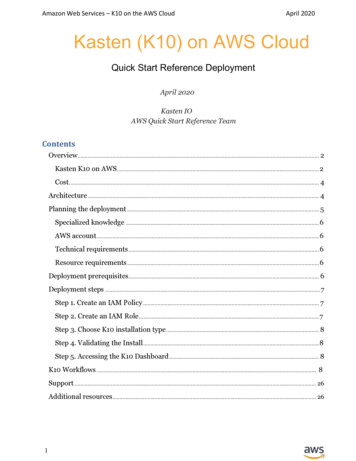
![Index [beckassets.blob.core.windows ]](/img/66/30639857-1119689333-14.jpg)

